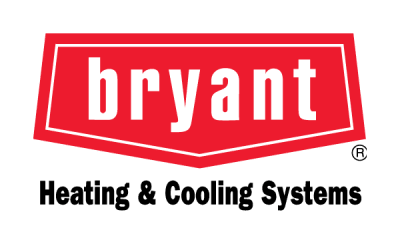Is your air conditioning system failing to keep you cool during the scorching Nevada City summers? You’re not alone. Many homeowners in the area experience the frustration of an AC system that’s suddenly on the fritz. In this guide, we’ll explore the eight most common AC problems, shedding light on what might be causing your discomfort. BAEHR Heating & Air, your trusted provider of AC repair in Nevada City, CA is here to help you diagnose and resolve these issues.
Electrical Problems
Electrical problems can be a significant reason why your air conditioner (AC) has stopped working. Your AC system relies on a complex electrical network to power various components and facilitate the cooling process. When electrical issues occur, they can disrupt the system’s operation, leading to a range of problems and potentially causing the AC to stop working. Here’s how electrical problems can be the cause of your AC issues:
- Tripped Circuit Breakers: When electrical circuits become overloaded due to a malfunction or a short circuit within the AC system, it can trip the circuit breakers. This leads to a complete shutdown of the AC to prevent electrical hazards.
- Safety Mechanism Activation: Many AC systems are equipped with safety mechanisms that detect electrical problems, such as overheating. When these mechanisms are triggered, they shut down the AC to prevent damage or safety hazards.
- Capacitor Issues: Capacitors in your AC system help start the compressor and fans. When capacitors fail or become weak, it can lead to the AC struggling to start or not starting at all.
Sensor Problems
Sensor problems can indeed be a reason why your air conditioner (AC) is not working correctly. Your AC system relies on various sensors to monitor and regulate its operation, ensuring that it cools your home effectively. When these sensors malfunction, it can lead to issues that disrupt the normal function of your AC. Here’s how sensor problems can cause your AC to stop working or work inefficiently:
- Thermostat Misreadings: The thermostat in your AC system communicates with various sensors to determine the indoor temperature. If a sensor provides incorrect temperature readings, the thermostat may adjust the cooling cycle inappropriately, leading to inadequate cooling or overheating.
Inaccurate Humidity Control: Some AC systems include humidity sensors to help maintain comfortable indoor humidity levels. If these sensors malfunction, your AC may not dehumidify your indoor air adequately, resulting in discomfort and potentially causing sensor-related issues. - Erratic Cycling: Sensors play a role in controlling the on and off cycles of your AC system. Malfunctioning sensors can lead to erratic or inconsistent cycling, causing your AC to stop working or run continuously.
Refrigerant Leaks
Refrigerant is essential to your air conditioning system and is responsible for cooling the air that circulates throughout your home. If you notice a decrease in cooling capacity or hissing noises near the indoor unit, it may indicate a refrigerant leak. Low refrigerant levels can strain the compressor and affect your AC’s ability to maintain the desired temperature.
- Icing of Evaporator Coils: A common consequence of refrigerant leaks is the freezing of the evaporator coils. As the refrigerant level drops, the coils become colder than they should, causing the moisture in the air to freeze on the coils. This ice buildup can lead to restricted airflow and inefficient cooling.
- Short Cycling: The AC might start to cycle on and off more frequently as it struggles to maintain the desired temperature due to refrigerant loss.
- Warm Air Blowing: If your AC is blowing warm or room-temperature air, it’s often a clear sign of a refrigerant leak.
- Oil Depletion: Refrigerant also carries oil throughout the AC system, which is essential for lubricating various components. A refrigerant leak can deplete this oil, potentially causing damage to moving parts.
Faulty Fan Motors
Faulty fan motors can be a significant reason why your air conditioner (AC) stops working. The fan motors play a crucial role in the AC system’s operation by circulating air over the evaporator and condenser coils. When these motors malfunction, it can lead to various issues that impact your AC’s performance and can result in a complete system shutdown. Here’s how faulty fan motors can be the cause of your AC not working:
- Reduced Air Circulation: The fan motors are responsible for drawing warm indoor air over the evaporator coils, where it is cooled, and then circulating the cool air back into your living spaces. If the fan motors are faulty, they may not function correctly or stop altogether, leading to a lack of airflow and reduced cooling capacity.
- Inadequate Cooling: Without proper air circulation, the cooling process within your AC system is compromised. This can result in your home feeling warmer than desired, even though the AC is running.
- Overheating Components: Faulty fan motors can lead to the overheating of other critical components in your AC, including the compressor. Prolonged overheating can damage these components and result in a system shutdown.
- Inconsistent Performance: You may notice that your AC intermittently provides cooling and then stops, only to start again. This inconsistency can be a sign of a malfunctioning fan motor, which fails to maintain a steady flow of air.
- Unusual Noises: Malfunctioning fan motors can produce unusual or loud noises, such as grinding, squealing, or rattling sounds. These noises can be a clear indicator that the fan motors need attention.
Frozen Evaporator Coils
Frozen evaporator coils are a common issue that can cause your air conditioner to stop working effectively or completely. This problem is typically associated with reduced cooling capacity and can lead to a complete shutdown of your AC system. Here’s how frozen evaporator coils can be the reason why your AC stopped working:
- Restricted Airflow:
The evaporator coils are responsible for cooling the warm air that passes over them. This process relies on a continuous flow of warm air from your home.
If there is restricted airflow, often caused by clogged or dirty air filters, blocked vents, or closed registers, the coils may become colder than they should.
- Condensation and Frost Formation:
When the evaporator coils become too cold due to restricted airflow or low refrigerant levels, the moisture in the air that condenses on the coils can freeze.
This formation of frost or ice on the coils can lead to a layer of ice buildup, reducing their ability to efficiently cool the air.
- Potential AC Shutdown:
In some cases, the ice buildup on the evaporator coils can become so severe that it completely blocks the airflow.
When this happens, your AC may shut down automatically to prevent damage to the compressor and other components.
- Water Leakage:
As the ice on the coils begins to melt, it can lead to water leakage inside your HVAC system or even in your home, causing potential water damage.
Clogged Condensate Drains
Clogged condensate drains can indeed be a common reason why your air conditioner is not working as it should. The condensate drain plays a crucial role in the operation of your AC system, and when it becomes blocked, several issues can arise that disrupt your AC’s function. Here’s how clogged condensate drains can lead to AC problems:
- Moisture Removal: One of the primary functions of an air conditioner is to remove moisture from the indoor air. As warm air passes over the evaporator coils, the moisture in the air condenses into water, which then drips into the condensate pan.
- Condensate Drain: The collected water in the condensate pan is then drained through a system of pipes or tubing to the outside of your home. This process helps maintain indoor humidity levels at a comfortable and healthy range.
- Clogging Issues: Over time, the condensate drain line can become clogged with various types of debris, including dirt, algae, mold, and dust. When this occurs, the drain is obstructed, and the water cannot flow freely.
- Overflow and Damage: If the condensate drain is blocked, the water accumulates in the condensate pan. When the pan overflows due to the blockage, the excess water can leak or back up into your AC system, causing damage to critical components.
- AC Shutdown: To prevent further damage, modern AC systems are equipped with safety mechanisms, such as a float switch or sensor in the condensate pan. When these sensors detect an overflow or high water level, they trigger a shutdown of the AC unit to protect it from water damage and potential electrical issues.
Malfunctioning Start Capacitor or Relay
A malfunctioning start capacitor or relay can significantly impact your air conditioner’s ability to start and run efficiently. These components play a crucial role in initiating and maintaining the operation of your AC system. Here’s a closer look at how a malfunctioning start capacitor or relay can affect your AC:
Start Capacitor:
- Failure to Start: When the start capacitor malfunctions, it may prevent the compressor and motor from starting. As a result, your AC won’t begin the cooling cycle.
- Clicking Sound: You might hear a clicking sound when your AC attempts to start but fails, which can be a sign of a faulty start capacitor.
- Intermittent Starting: In some cases, a malfunctioning start capacitor might allow your AC to start occasionally but not consistently. This intermittent starting can be frustrating.
- Overheating: A failing start capacitor can overheat, further deteriorating its performance and potentially damaging other components.
Relay:
- No Power to the Compressor: The relay is responsible for sending power to the compressor. If it malfunctions, the compressor won’t receive the necessary electrical signal to start, leading to AC failure.
- Constant Running: Conversely, a relay that sticks in the “on” position can cause your AC to run continuously without cycling off, resulting in wasted energy and potential system damage.
While some AC issues can be resolved with basic DIY maintenance, others require the expertise of HVAC professionals. Knowing when to call in the experts can save you time, money, and unnecessary frustration. Our team at BAEHR Heating & Air specializes in diagnosing and fixing complex AC problems, ensuring your home stays comfortably cool.
If you’re experiencing issues with your AC, don’t let discomfort linger. Understanding the most common problems is the first step to getting your system back on track. Whether it’s thermostat troubles, clogged filters, refrigerant leaks, or faulty fan motors, BAEHR Heating & Air is here to provide professional and trustworthy air conditioner services in Nevada City, CA. We have the expertise and experience to diagnose and resolve these issues promptly, ensuring your home remains a haven of cool comfort. Don’t let AC problems disrupt your life – contact us today to schedule a comprehensive inspection and enjoy a summer free from AC worries.







